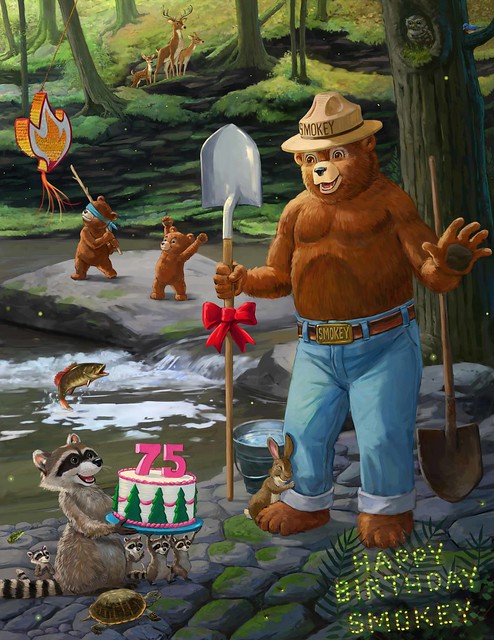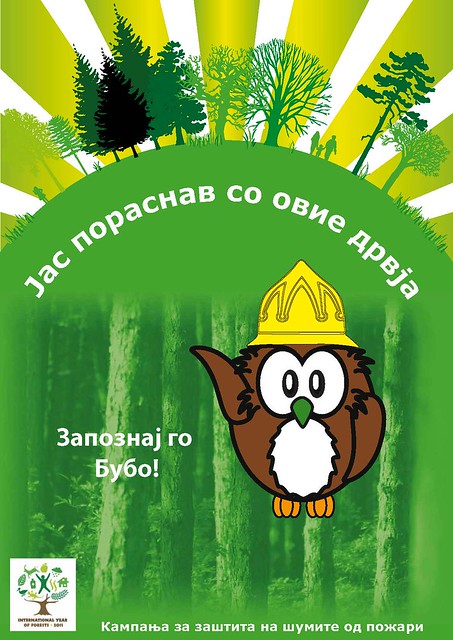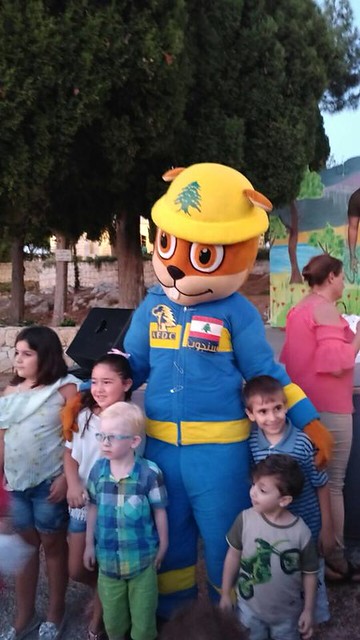
This week, the U.S. Forest Service commemorates International Day of Forests and its 2019 theme Forests and Education with the 75th birthday of the iconic forest educator, Smokey Bear. While Smokey Bear’s influence in the United States is remarkable, he is also an inspiration to forest mascots around the world.
For instance, in Mexico, the National Forestry Commission employs Savi, a smiling squirrel who teaches youth and adults alike about the dangers of forest fires. Savi advocates for healthy forests in Mexico and leads his own El Club de Savi reaching all ages through games, activities, and his Facebook page.

In South America, the National Forestry Corporation of Chile created Forestín in 1976. Forestín, a ranger or member of the fire brigade, is a coypu, a semiaquatic rodent resembling a beaver, and educates the Chilean public about forest fires.

During UN International Year of Forests in 2011, Bubo, a large-eyed owl, was created in North Macedonia with the Food and Agriculture Organization. Bubo was part of a comprehensive national forest fire preparedness plan for the Eastern European country.

And, ten years ago, the Association for Forests, Development and Conservation created Sanjoub, a charming squirrel, for Lebanon. Sanjoub has his own Facebook page, Twitter account and posts in Arabic and English to spread knowledge for the protection of Lebanon’s nature from fires and other disturbances.
Though Smokey Bear has changed styles over the years, his famous slogan, Only You Can Prevent Wildfires retains its primary goal to prevent wildfires caused by careless human actions. These unintended fires can severely damage the natural landscape, wildlife, and surrounding communities. Wildfires also cost significant financial and human resources to extinguish. The historic campaign’s clear and focused messaging is a big part of its lasting success and worldwide influence.
Even though Smokey is a mascot that shares big bear hugs, he is based in sound social science research. In 2015, the University of Delaware conducted a study for Rare Conservation proving that adults change behavior when education campaigns anthropomorphize a mascot. The majority of participants in their study didn’t want to disappoint a furry friend.
Mascots depicting an identifiable native species in the local environment can augment peer pressure for public good. In 75 years, Smokey Bear’s example reaches beyond the prominent campaigns of Woodsy Owl, Sparky the Fire Dog, and many other park mascots in the United States.
Smokey’s strategic method is a model for Savi, Forestín, Bubo, Sanjoub and other partners. As a result, global public awareness of the threats poised by accidental forest fires has increased. On International Day of Forests, Smokey Bear continues his important work alongside a charismatic cadre of educators.
